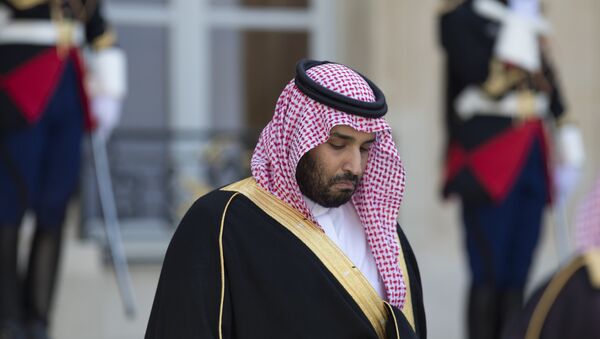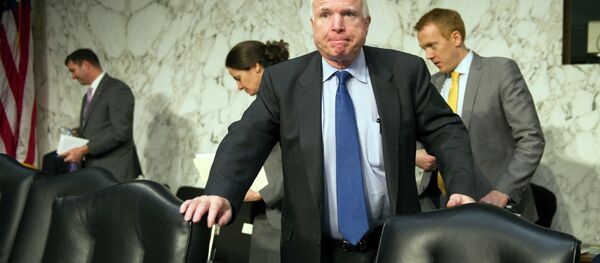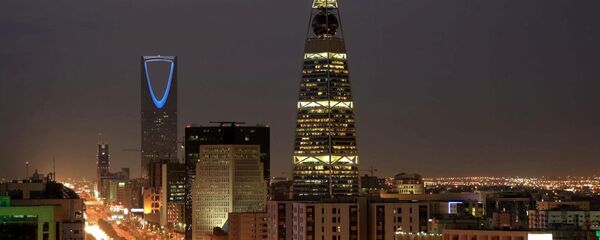Citing Iran's Foreign Minister Mohammad Javad Zarif, the political analyst noted that Tehran and Riyadh could team up to resolve ongoing crises in Syria, Yemen and Bahrain.
"I do not see any reason why Iran and Saudi Arabia should have hostile policies towards each other. We can in fact work together to put an end to the miserable conditions of the people in Syria, Yemen, Bahrain and elsewhere in the region," Mohammad Javad Zarif told the World Economic Forum Wednesday, as quoted by Reuters.
There are certain preconditions for the potential thaw, Afghahi believes.
According to the former diplomat, at the end of the day, member states of the Cooperation Council for the Arab States of the Gulf (GCC), which includes Saudi Arabia, Bahrain, Kuwait, Oman, Qatar and the United Arab Emirates (UAE), have realized the seriousness of the situation.
On the one hand, Saudi Arabia and its Gulf allies have abandoned their hope to topple Bashar al-Assad; on the other, Riyadh has been heavily struck by the slump in oil prices and the Gulf's stock-market crash.
"The brilliant victories of the Syrian [Arab] Army and its allies, the liberation of Aleppo, as well as Trump's harsh rhetoric toward Saudi Arabia and its regional allies — all of the above prompted the GCC countries to think seriously about their position," Afghahi underscored.
He noted that the GCC leaders fear that a new republican system could eventually replace their monarchies.
"Therefore, the GCC [leaders] have decided that it is necessary to ease tensions through dialogue and resolve their conflicts [in the region]," he pointed out.
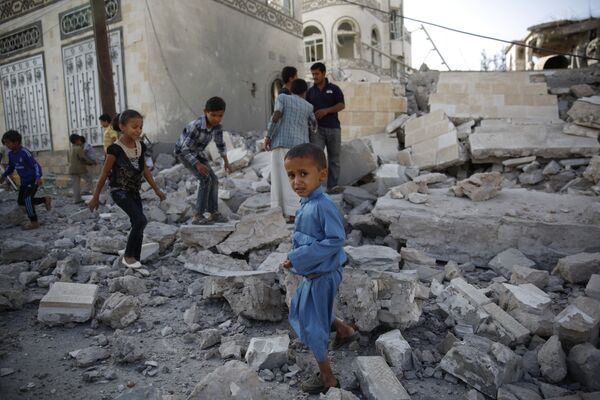
Afghani noted that a heated debate about the fate of the region is going on among the GCC countries and that some of them, particularly Kuwait, have sent a number of "requests" to Tehran. According to the former diplomat, Iranian President Hassan Rouhani responds to these requests.
However, there is still a long way to go for Iran and Saudi Arabia to bury the hatchet, the political analyst underscored.
Citing Zarif and Rouhani, Afghahi underscored that Iran is open to dialogue with Saudi Arabia and its Gulf allies. He recalled that Tehran has repeatedly called upon Riyadh to solve regional disputes via diplomatic means. Unfortunately, the Saudi leadership turned a deaf ear to Iran's peace initiatives and continued to fund extremists, thus far creating opportunities for an upsurge in terrorism in the region, Afghani remarked.
However, this policy has failed, and backfired at Riyadh, the political analyst highlighted, pointing to the fact that Saudi Arabia will eventually face a financial crisis.
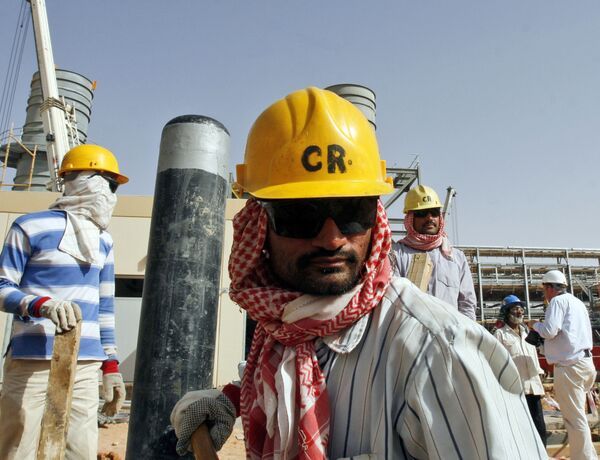
Echoing Zarif, the former diplomat stressed that Iran and Saudi Arabia have a success story of mutually beneficial collaboration.
"Iran and Saudi Arabia were able to actually stop impeding the process of the presidential election in Lebanon. We have a success story," Zarif said in Davos on Wednesday.
Afghahi specified that Tehran and Riyadh have recently managed to reach a compromise on the presidential election in Lebanon. As a result, Saudi-backed Saad Hariri assumed the post of Prime Minister after Michel Aoun was elected President of Lebanon.
According to the political analyst, Iran and Saudi Arabia may use this precedent as a starting point for their collaboration on Syria during the upcoming peace conference in Kazakhstan's capital Astana.
"Therefore, I can say that now the conditions for bilateral dialogue between Tehran and Riyadh on establishing relations and resolving regional crises, are more favorable than before," Afghahi underscored.
Never miss a story again — sign up to our Telegram channel and we'll keep you up to speed!
